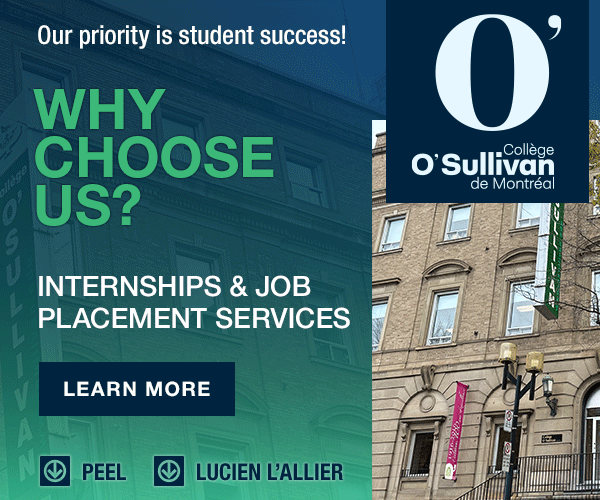Historian Kristina Llewellyn has been named an affiliate faculty member with the Wilson College of Leadership and Civic Engagement, the first from the faculty of Humanities.

Kristina Llewellyn's work focuses on studying historical harms to shape meaningful principles of restorative justice and offer paths for redress and ultimately, a more just future.
Llewellyn, who has spent the past 15 years at the University of Waterloo's departments of Social Development Studies and History, is also joining McMaster's department of History.
She holds a PhD in Educational Studies from the University of British Columbia and an MA from the Ontario Institute for Studies in Education at the University of Toronto.
Llewellyn's work focuses largely on oral histories, and how those can be used to teach young people about historical injustices to lay the groundwork for meaningful responses and action.
One key project she has worked on is called Digital Oral Histories for Reconciliation (DOHR), an initiative that uses virtual reality to connect high school students with the personal stories of racism, including neglect and abuse, from former residents of the Nova Scotia Home for Colored Children. The segregated welfare institution for African Nova Scotian children opened in 1921 and closed almost 70 years later.
Another key project is her work on the executive committee of the Thinking Historically for Canada's Future project, a Canada-wide study on history education.
We chatted about her research and her work with Wilson College.
Tell us a little about your academic work and research, and how it relates to your work with Wilson College.
My last department, Social Development Studies, has a similar orientation to Wilson College in that we were focused on how young people could be change makers, often related to public service, NGOs, social work and education.
My areas of study are history, education, and civic studies. Broadly speaking, I engage with questions that are related to the development of young people's historical consciousness, which refers to how people make sense of the past in order to engage with civic life today and into the future.
Specifically, I look at how people have been excluded historically from our civic life and how we can engage in the redress of those historical injustices today.
One of the general fields in which I do that is through oral history, a critical aspect of storytelling and life histories that connects people across different generations and cultures. It is an important way of engaging with history that builds relationality how what we hear or witness in those stories may activate us to have a meaningful response.
In history education, I look at how we can teach about historical harms in ways that are trauma-informed, draw upon restorative justice principles, and offer paths forward for redress that builds a more just future.
What drew you to Wilson College?
Wilson College's program is unique. I don't know of any other program that's explicitly focused on engaging the next generation of civic leaders to tackle the urgent and wicked problems of our time.
Youth apathy is a concern for our society today. This is a concern especially for the field of education. How do we engage young people to ensure that we have a healthy democracy going forward? This problem is often conceived, however, as being a problem rooted in young people themselves. I see the issue in a very different way. We are responsible for current civic institutions and processes creating a sense of hopelessness and despair about the future that has pushed many young people from engaging in civic affairs.
Part of what I see as the mission of Wilson College, and all the faculty who are part of it, is engaging students in a hopefulness or consciousness-raising about civic life that leads them to purposeful actions towards a better future. This requires a learning experience in our courses that is relevant, interdisciplinary, and experiential for making transformational change.
Getting to be a part of this new program and the community of learners that will make up Wilson College is so enriching and exciting for me.
One of the stereotypes of the generation who is in, or will soon be starting, university is that they're constantly on their phones, in their rooms and not actually out in the world. Are young people disengaged? Or do we misunderstand how they're interacting with the world?
One of the big issues that I've looked at with respect to civic engagement and education for youth is this idea of whether young people are politically disengaged or whether they're differently engaged.
Most research shows that youth are relatively disengaged from more traditional democratic processes. It is important that they be re-engaged in formal politics. We certainly need to re-engage youth by transforming our current dysfunctional systems and processes and providing youth with meaningful leadership in political systems. That said, we also need to recognize the ways in which youth are differently engaged and already offering leadership in various arenas of civic life. Youth are leaders who are making change through innovative forms of activism and calls for justice.
One of the ways we need to rethink an approach to youth civic engagement is in how we think of them as citizens-in-waiting we talk a lot about when they're 18 then you can vote. Young people are not citizens-in-waiting they're citizens now and they are the change makers now. And if we're only talking about pensions and taxes, and we're not talking about climate injustice, genocide, colonialism, reconciliation, LGBTQI+ rights, and more - which youth are raising as urgent issues to be addressed then there is little chance that our more formal political arenas will be able to benefit from their passion for justice.
My hope for Wilson College is that it will be a place to coalesce what's already being done here at McMaster in many ways and in many different places. We're not creating something new, but rather creating an academic program that can focus a lot of the energies and work that's already being done across this campus.
Tell us about the upcoming Wilson graduate seminar that you're teaching in the Winter term.
The graduate seminar will examine what it means to be civically engaged, particularly with respect to youth.
The course will blend theory and practice tapping into the community members who already have the expertise and the projects that are already underway at McMaster. I want to ensure that there are opportunities to learn from civic leaders and be part of civic actions that make transformational change in our local community.
The course will take an interdisciplinary approach. We need to understand how philosophers, sociologists, historians, political scientists, health researchers, computer scientists and [those in] many other disciplines may bring their knowledge to bear on the wicked problems that need to be tackled in our community. I want to ensure that graduate students across the campus know that they are needed as the next generation of civic leaders.
Why do you think Wilson College and its programs might be particularly relevant right now?
I think that for a very long time there's been a thirst from young people to have opportunities to be civic leaders. It's young people who are pushing those of us in education to address urgent issues they're asking: Why didn't I know about this? What can I do? What's been done in the past? What works?
This is what we need to address if we want a hopeful future. We need the next generation of civic leaders to have the knowledge and tools to engage across differences and to engage in positive dialogue that creates solidarities towards collective change.
Wilson wants to reach the energized, smart, diverse young people who may not have envisioned themselves as leaders. We want to offer them motivation, resources, a community, and say: these are the many paths to being a change maker. Here's what it could look like, here are some of the theories to support actions, here are the skills to bring your visions to life and then allow them to take up those opportunities and support them in the incredible innovations they bring to our civic life.
My work with Wilson is about facilitating the kind of environment where that is possible.













